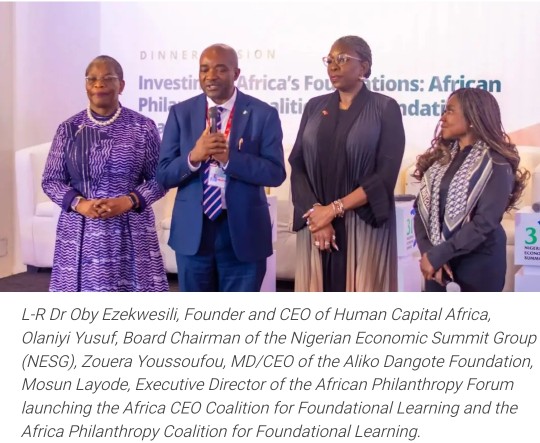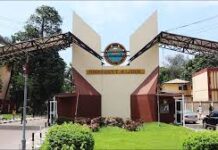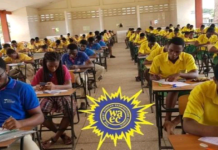African business leaders and philanthropists are taking matters into their own hands.
At a high level dinner in Abuja on Sunday, they launched two coalitions aimed at addressing what organizers called a “human capital emergency” affecting millions of children across Sub-Saharan Africa.
The timing couldn’t be more critical. Nine out of 10 children in Sub-Saharan Africa cannot read proficiently by age 10, making it one of the highest rates of learning poverty globally. Meanwhile, global education aid is projected to decline by $3.2 billion between 2023 and 2026, a 24 percent drop that threatens to worsen an already dire situation.
Human Capital Africa, the Nigerian Economic Summit Group, the Aliko Dangote Foundation and the African Philanthropy Forum unveiled the African CEOs’ Coalition for Foundational Learning and the Africa Philanthropy Coalition for Foundational Learning.
Both initiatives aim to mobilize domestic resources and African led solutions rather than waiting for external help that’s increasingly scarce.
The African CEOs’ Coalition brings together private sector leaders who’ll leverage their influence, networks and corporate capabilities to strengthen education delivery and shape policy.
The Philanthropy Coalition seeks to combine the collective resources of Africa’s growing philanthropic sector to fund proven, locally designed solutions.
Dr. Oby Ezekwesili, Founder and CEO of Human Capital Africa, framed the challenge as both urgent and solvable.
“We are here with the conviction that Africa led philanthropy and private sector leadership can change the trajectory of education on our continent,” she told attendees at the Transcorp Hilton Abuja.
The message is clear: Africa must lead by mobilizing domestic resources and designing solutions for its own contexts.
The numbers paint a sobering picture. In West and Central Africa, education funding could fall by 25 percent, while Eastern and Southern Africa faces a potential 28 percent decline. This comes at precisely the moment when the continent needs massive investments to address foundational learning gaps.
Niyi Yusuf, Chairman of the Nigerian Economic Summit Group, connected the education crisis directly to Africa’s economic future. “By 2050 Africa will have 2.5 billion people, and the majority of them will be young people,” he explained. “They are not just the workforce of the future, they are the consumers of the future. If they can’t produce quality, if they can’t earn properly, they cannot consume.”
The NESG publicly committed to the foundational learning work, recognizing what Yusuf called “enlightened self interest” for business leaders. When educational foundations are weak, there’s only so much that can be built on top.
Zouera Youssofou, CEO of the Aliko Dangote Foundation, was blunt about the stakes. “If you don’t get foundational learning right, nothing else will matter,” she said while endorsing the Philanthropy Coalition. African philanthropies are positioned uniquely because they’re close to beneficiaries and understand local contexts. “There are things a local organisation can do that an outside organisation cannot,” Youssofou added.
Dr. Tayo Aduloju, CEO of the Nigerian Economic Summit Group, delivered perhaps the most pointed critique during his keynote address. He described learning poverty as “a symptom of a nation of irresponsible adults” who’ve left 20 million children out of school and many more unable to learn despite being enrolled.
The problem isn’t just underfunding, Aduloju argued. Countries are budgeting and spending limited resources on building more schools and employing more teachers, but money alone doesn’t solve the crisis. “Our children are struggling to learn in a system that does not teach learning,” he said.
Many students are smart enough to realize they’re not actually learning, and that realization drives them to leave school entirely.
The new coalitions aren’t starting from scratch. They’ll complement the African Ministerial Coalition for Foundational Learning, which has secured commitments from more than 30 countries to end learning poverty in Africa by 2035.
Mosun Layode highlighted the untapped potential of African wealth.
Africans have an estimated investable wealth of $2.7 trillion, and the number of millionaires is expected to grow by 65 percent in the next decade. The resources exist to drive development. What’s needed is ensuring philanthropy aligns with national plans, avoids working in silos and invests collaboratively in areas that generate real impact.
The launch event focused on practical steps to deepen collaboration and partnerships between African stakeholders. Leaders discussed how to fill the education finance gap and scale up solutions that are demonstrating strong progress at country level.
The learning crisis isn’t merely an education challenge. It’s fundamentally about Africa’s ability to transform its demographic advantage into economic prosperity. With the continent’s working age population set to expand dramatically in coming decades, failing to provide foundational learning skills means squandering the potential of hundreds of millions of young people.
The coalitions represent a shift in mindset. Rather than depending on declining foreign aid or waiting for external solutions, African leaders are asserting ownership over one of the continent’s most pressing challenges. Whether this approach can generate the scale of change needed remains to be seen, but organizers insist the alternative is accepting failure.
As Aduloju put it starkly, “How we treat the child in the next decade will determine not just our competitiveness but our survival as a country and as a continent.” That’s the bet these coalitions are making: that African leadership, resources and innovation can turn around an education system that’s currently failing the vast majority of its children.
The event took place at the 31st Nigerian Economic Summit, bringing together leaders committed to ensuring every child acquires essential foundational learning skills. For a continent where nine out of 10 children can’t read a simple text by age 10, the urgency couldn’t be clearer.
News Ghana














